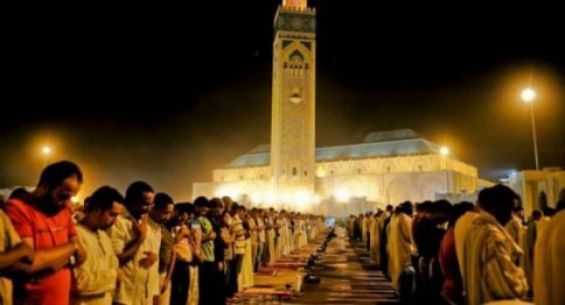Once again, northern cities are leading protests against the closure of mosques for evening prayers during the month of Ramadan. History is repeating itself. Wednesday evening in Tangier, people took to the streets to demand the reopening of mosques, violating the curfew and other sanitary measures imposed by the government.
At the meantime, the El Jirari district of the capital of Detroit saw the arrest of several people who prayed in front of closed mosques, reports the Tanja24. This protest was preceded, at the end of Friday prayers, April 9, by another one held in the district Bir Chifa.
The city of M'Diq also joined the protest on Tuesday evening. Dozens of young people went out to demand the right to perform Tarawih, reports Teouan Press.
Sheikh Abu Naim observes silence
Mohamed Hamdaoui, member of the guidance council of Al Adl wal Ihsane, supported these protests. He called the government’s measure a «direct attack on Islam and a systematic attack on the religion of Moroccans».
For his part, Salafist Hassan Kettani opposed the decision by responding to the president of the council of ulemas of Skhirate-Témara, Lahcen Sguenfle, who urged people to perform Tarawih at home.
It is clear that the great absentee from this debate is none other than the very controversial Sheikh Abu Naim, who has preferred for the time being to observe silence.
In April 2020, he was sentenced to one year in prison and fined 2,000 dirhams for having denounced in a video shared to social media the closure of mosques decreed by the government following a fatwa from the Higher Council of Ulema, chaired by King Mohammed VI. He was charged of «incitement to hatred and threats to citizens» and «excommunication of the State and its institutions».
Beyond this controversy over the Tarawih and its political calculations, it should be noted that Morocco is not an exception in the Arab world. Other Arab League countries have made the same decision, namely Oman, Jordan, Tunisia and Qatar. Turkey also opted for the same choice.
As for the other countries, including Saudi Arabia, Algeria and Egypt, they authorized the Tarawih but under certain conditions. In addition to the traditional health arrangements to deal with the spread of Covid-19, these states have asked imams to perform the prayers of El Icha and the Tarawih in 30 minutes.





 chargement...
chargement...













